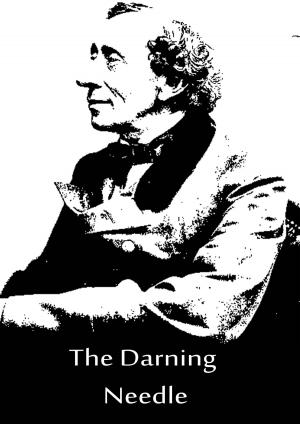Commentaries on the Gallic War [Christmas Summary Classics]
Nonfiction, Reference & Language, Reference| Author: | Julius Cæsar | ISBN: | 1230000034797 |
| Publisher: | Zhingoora Books | Publication: | December 1, 2012 |
| Imprint: | Language: | English |
| Author: | Julius Cæsar |
| ISBN: | 1230000034797 |
| Publisher: | Zhingoora Books |
| Publication: | December 1, 2012 |
| Imprint: | |
| Language: | English |
Christmas Summary Classics
This series contains summary of Classic books such as Emma, Arne, Arabian Nights, Pride and prejudice, Tower of London, Wealth of Nations etc. Each book is specially crafted after reading complete book in less than 30 pages. One who wants to get joy of book reading especially in very less time can go for it.
JULIUS CÆSAR
Commentaries on the Gallic War
Caius Julius Cæsar was born on July 12, 100 B.C., of a noble Roman family. His career was decided when he threw in his lot with the democratic section against the republican oligarchy. Marrying Cornelia, daughter of Lucius Cinna, the chief opponent of the tyrant dictator Sulla, he incurred the implacable hatred of the latter, and was obliged to quit Rome. For a season he studied rhetoric at Rhodes. Settling in Rome after Sulla's death, Cæsar attached himself to the illustrious Pompey, whose policy was then democratic. In B.C. 68 he obtained a quæstorship in Spain, and on returning next year reconciled the two most powerful men in Rome, Pompey and Crassus. With them he formed what became known as the First Triumvirate. Being appointed to govern Gaul for five years, Cæsar there developed his genius for war; but his brilliant success excited the fears of the senate and the envy even of Pompey. Civil war broke out. The conflict ended in the fall of Pompey, who was defeated in the fateful battle of Pharsalia, and was afterwards murdered in Egypt. Julius Cæsar now possessed supreme power. He lavished vast sums on games and public buildings, won splendid victories in Gaul, Egypt, Pontus, and Africa, and was the idol of the common people. But the jealousy of many of the aristocrats led to the formation of a plot, and on March 15, 44 B.C., Cæsar was assassinated in the Senate House. This summary relates to the commentaries known to be by Cæsar himself, certain other books having been added by other Latin writers. It will be noticed that he writes in the third person. This epitome is prepared from the Latin text.
Christmas Summary Classics
This series contains summary of Classic books such as Emma, Arne, Arabian Nights, Pride and prejudice, Tower of London, Wealth of Nations etc. Each book is specially crafted after reading complete book in less than 30 pages. One who wants to get joy of book reading especially in very less time can go for it.
JULIUS CÆSAR
Commentaries on the Gallic War
Caius Julius Cæsar was born on July 12, 100 B.C., of a noble Roman family. His career was decided when he threw in his lot with the democratic section against the republican oligarchy. Marrying Cornelia, daughter of Lucius Cinna, the chief opponent of the tyrant dictator Sulla, he incurred the implacable hatred of the latter, and was obliged to quit Rome. For a season he studied rhetoric at Rhodes. Settling in Rome after Sulla's death, Cæsar attached himself to the illustrious Pompey, whose policy was then democratic. In B.C. 68 he obtained a quæstorship in Spain, and on returning next year reconciled the two most powerful men in Rome, Pompey and Crassus. With them he formed what became known as the First Triumvirate. Being appointed to govern Gaul for five years, Cæsar there developed his genius for war; but his brilliant success excited the fears of the senate and the envy even of Pompey. Civil war broke out. The conflict ended in the fall of Pompey, who was defeated in the fateful battle of Pharsalia, and was afterwards murdered in Egypt. Julius Cæsar now possessed supreme power. He lavished vast sums on games and public buildings, won splendid victories in Gaul, Egypt, Pontus, and Africa, and was the idol of the common people. But the jealousy of many of the aristocrats led to the formation of a plot, and on March 15, 44 B.C., Cæsar was assassinated in the Senate House. This summary relates to the commentaries known to be by Cæsar himself, certain other books having been added by other Latin writers. It will be noticed that he writes in the third person. This epitome is prepared from the Latin text.
![Cover of the book Commentaries on the Gallic War [Christmas Summary Classics] by Julius Cæsar, Zhingoora Books](https://www.kuoky.com/images/2012/december/500x500/1230000034797-7J0e_500x.jpg)






![Cover of the book The King Of The Mountains [Christmas Summary Classics] by Julius Cæsar](https://www.kuoky.com/images/2012/november/300x300/1230000032324-NNLV_300x.jpg)



![Cover of the book Northanger Abbey [Christmas Summary Classics] by Julius Cæsar](https://www.kuoky.com/images/2012/november/300x300/1230000032298-FPGu_300x.jpg)


![Cover of the book Eugene Aram [Complete] by Julius Cæsar](https://www.kuoky.com/images/2012/december/300x300/1230000040030-eyI0_300x.jpg)
